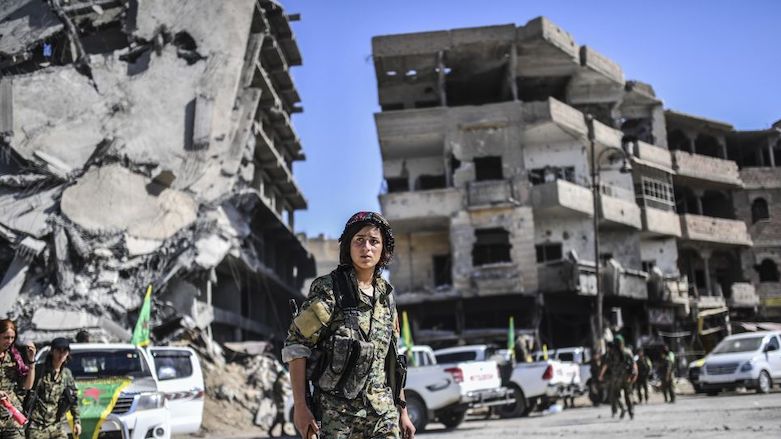Syrian Kurds call on Germany to support northeast Syria, not only Idlib

ERBIL (Kurdistan 24) – The German government is investing nearly 49 million euros in Idlib. A Syrian Kurdish official told Kurdistan 24 he hopes Germany will also provide more humanitarian support to Syria’s northeast.
“I hope this money will not end up with those terrorists in Idlib, because if they take this money, the situation in Syria will never change and terrorism will continue,” Ibrahim Murad, the representative of the self-administration of the North and East Syria in Germany, stated.
“I hope this money will benefit the right people, which is the Syrian people.”
The German government in cooperation with the EU and the German development agency Deutsche Gesellschaft für Internationale Zusammenarbeit (GIZ) have invested nearly 49 million euros in Idlib.
Earlier, a Free Syrian Police official told the Telegraph that the United Kingdom, Germany, the Netherlands, and Denmark had all cut funding.
However, it seems Germany still backs projects in Idlib to support civil actors.
A part of Idlib is held by the Hay’at Tahrir al-Sham (HTS), that the US links to al-Qaida, while another part of it is linked to rebels backed by Turkey.
“The project supports civil actors that oppose extremist influences in Idlib by material support, training, and measures to facilitate dialogue,” State Secretary Walter Lindner (SPD) said in response on Oct. 26 at the request of Die Linke Parliament member Evrim Sommer.
Sommer is afraid the support will be used by “terrorist gangs funded by [Turkish President Recep Tayyip] Erdogan” instead of civilians, she told the German newspaper Tagesspiegel. She also called on the government to back the Kurds in Syria.
“The German Federal Government must free itself in Syria from the self-imposed Babylonian captivity of the Erdogan regime and provide the Kurdish-controlled areas of Syria with humanitarian support and stabilization aid as well,” the MP told Kurdistan 24.
“This is basically again interpreted as a ‘sign of good gesture’ from Germany to Turkey,” she added.
“Germany effectively connects its development aid policy to the Turkish policy in Syria, and it cannot be excluded that the development aid will get in the wrong hands.”
Until now, the German government has provided limited support to the northeast of Syria through the US-led coalition, in cities like Raqqa. In October 2018, Germany allocated 10 million euros for Raqqa and Deir al-Zor. Moreover, in November 2017, Germany said it would spend 10 million euros to help remove mines from the war-torn region.
According to Murad, Germany can do more to help northeast Syria.
“The German foreign policy should be criticized because four million people are living in northeast Syria and the People’s Protection Units [YPG] have resisted for many years, and a city has been liberated with thousands of civilians and fighters being killed,” he said.
“There are a lot of refugees from other parts of Syria; the people of Raqqa need more support,” the Syrian Kurdish official stressed.
Moreover, Murad said 173,000 people who lost their properties in Afrin, and who are now displaced, are living in Shahba in northern Aleppo. These people are “missing all the basic human needs; they have no water, no services, no houses, and the areas are full of mines,” he warned.
“Nobody is providing them with any assistance,” Murad said. “Unfortunately, the foreign policy of Germany is very disappointing.”
Editing by Karzan Sulaivany
